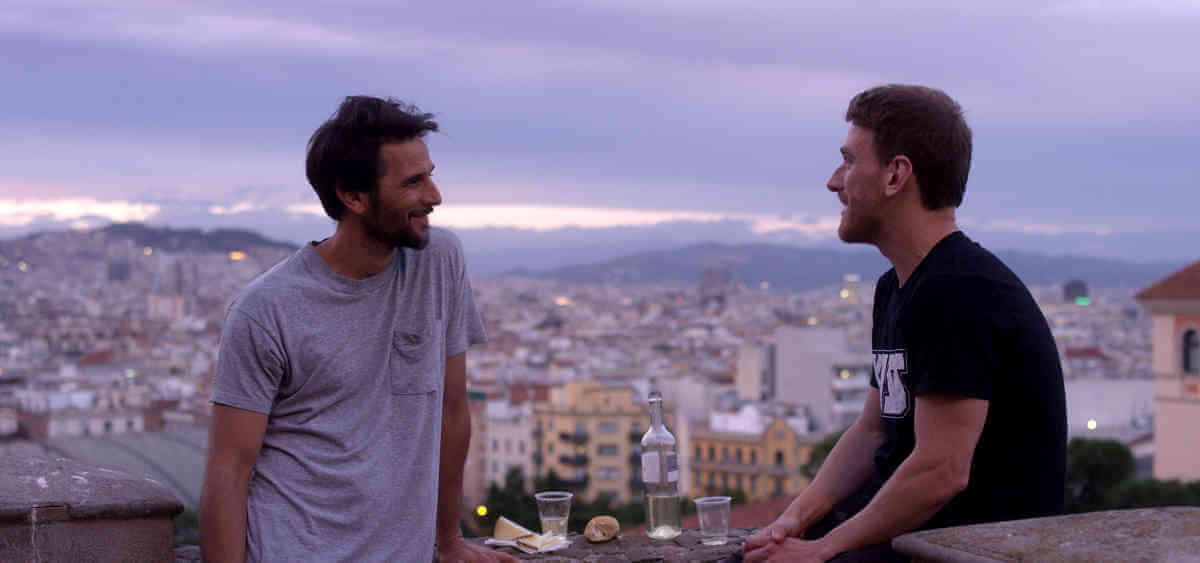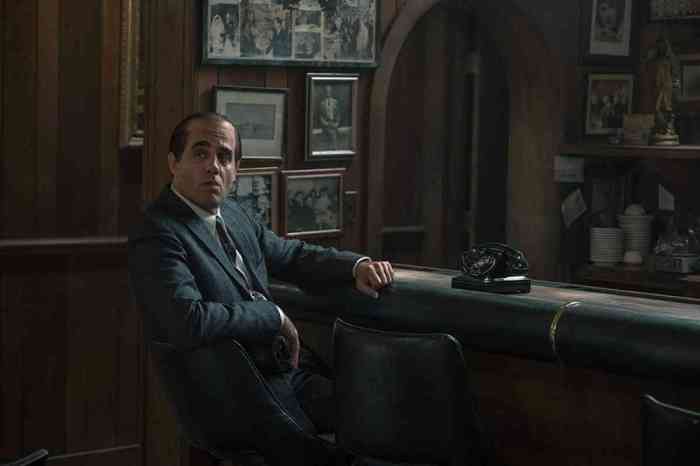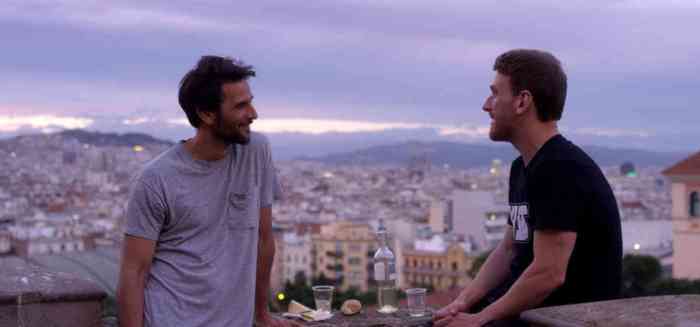Out gay Argentine writer/ director Lucio Castro’s wistful, seductive bromance “End of the Century” is one of the year’s best queer films.
This elegant drama opens with Ocho (Juan Barberini) arriving in Barcelona. He is lonely and horny. Castro allows viewers to fall into Ocho’s rhythms as he settles into his Airbnb and wanders around town, acclimating to his new environment.
Via Skype from Portugal, Castro explained his deliberate approach to the storytelling.
“The structure came about organically,” he explained. “I started with an archetypal beginning of a novel: a man arrives in town. Then I wrote it unplanned. I have this character in the city alone for 12 minutes with no dialogue. I wanted him and viewers to become aware of the city, the architecture, other people chatting, the sound and smells of the city. Once the characters start speaking, the movie has a lot of dialogue and the city becomes a background.”
Castro continued, “I liked the idea of Ocho being a part of the city, framed by the architecture and spaces like the balcony, or getting lost in a [hedge] maze — a labyrinth. A new city feels like that. And love, especially the beginning, feels like that, too — you go with it, not knowing the destination.”
When Ocho goes to the beach one afternoon, he eyes Javi (Ramon Pujol) but they fail to connect. Later, on his balcony, Ocho sees Javi and invites him up for a drink and sex. Their intimacy is erotic, but it also involves a discussion of PrEP and condoms. Castro, who is part of the generation devastated by AIDS and had friends die of it, wanted to emphasize the importance of safe sex and establishing trust with a partner. (A curious scene later in the film has a character concerned he contracted the virus after a particular sexual encounter).
“The new generation has a different relationship with AIDS, and in our society you don’t see as many people dying, so the fear is not there — there’s a different approach to it,” he observed.
In explaining how he chose to present sex, Castro quipped, “Straight couples have cheese and wine and then have sex. Gay couples first they have sex and then they have cheese and wine.”
It is during their post-coital repast that Javi drops a bombshell, telling Ocho, “We’ve met before.”
“That’s my favorite moment when they confess!” Castro declared, “because it amplifies things and can give you narrative vertigo. It happens in life where someone says something that totally changes the perception of a scene.”
“End of the Century” then flashes back 20 years earlier to show how the men first met. In this episode, Ocho ar[=rives at his friend Sonia’s (Mía Maestro) apartment. She is dating Javi, but the guys connect when Sonia is out of town. These scenes depict the guys’ previous romantic encounter — in a time before cell phones and social media. They spend the day together, wandering through a museum, posing in front of a painting, walking around statues as they reflect on the past and how memory records it. These moments echo the present-day interactions we’ve already seen.
Both vignettes show the men falling in love. An episode of the guys dancing to “Space Age Love Song,” which segues into their first kiss, is perhaps the film’s most extraordinary scene — and not just because it is one of the only two sequences shot with a hand-held camera. It conveys the urgency and intensity of their passions and creates a connection that ripples through the years.
Castro also includes a third encounter between the guys, late in the film, that is deliberately ambiguous but also brilliant. It lets the audience decide what is real and what is imagined. This is what makes “End of the Century” so beguiling.
The filmmaker’s intention it to comment on themes of connection and communication between men. One stunning moment has Javi discovering a passage from David Wojnarowicz’s book “Close to the Knives” that Ocho left on his bed. The text, about periods of transition and being disconnected and in an unfamiliar state, describes not just the characters’ sense of emotional and physical limbo, but also mirrors the viewers’ experience of recalibrating Ocho and Javi’s relationship over the course of the film. Castro suggests that gay men inherently feel a sense of freedom while being “controlled by their sexual lives,” and he also asserts that in choosing a partner and committing to them one is “less free in some ways.”
“End of the Century” is provocative because it shows love in both its rational dimensions and its magical connectivity. But when asked about that, Castro demurred.
“I don’t have much to say about that,” he said. “There is a rational and magical part to a connection. I like this person for this, this, and this, but then there are these other reasons you can’t explain.”
What he does reveal is that he dedicated his film, his feature debut, to his husband Josh.
“The movie is not autobiographical, but a million things in it relate to my life,” Castro acknowledged. “Even though I’m not any of the characters, I’m all of the characters. That’s why.”
END OF THE CENTURY | Directed by Lucio Castro | Cinema Guild | In Spanish with English subtitles | Opens Aug. 16, IFC Center, 323 Sixth Ave. at W. Third St. | ifcenter.com

































